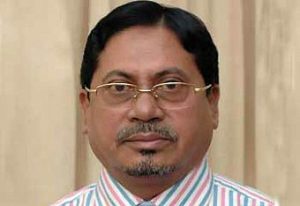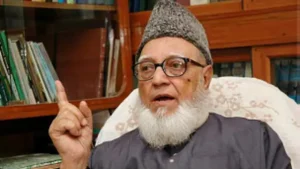
Since coming to power, Xi’s tenure has witnessed a significant increase in censorship and mass surveillance, a deterioration in human rights, including the persecution of Uyghurs in Xinjiang, the rise of a cult of personality around his leadership, and the removal of term limits for the presidency in 2018. Xi’s political ideas and principles, known as Xi Jinping Thought, have been incorporated into the party and national constitutions. As the central figure of the fifth generation of leadership of the PRC, Xi has centralized institutional power by taking on multiple positions, including new CCP committees on national security, economic and social reforms, military restructuring and modernization, and the internet. In October 2022, Xi secured a third term as CCP General Secretary, and was re-elected state president for a third term in March 2023.
Early Life and Education of Xi Jinping
Early Life
Full Name: Xi Jinping (习近平)
Born: June 15, 1953, in Beijing, China
Family Background
Xi Jinping was born into a prominent political family. His father, Xi Zhongxun, was a veteran revolutionary and a senior leader in the Chinese Communist Party (CCP). His mother, Qi Xin, was a well-educated woman who also played a significant role in his upbringing.
His family was part of the political elite, but they experienced significant hardship during the Cultural Revolution (1966-1976), a period of political turmoil in China. Xi’s father fell out of favor with Mao Zedong’s regime, and the family was subjected to persecution and political purges.
The Cultural Revolution and Hardships
In 1969, at the age of 16, Xi Jinping was sent to the rural areas of Shaanxi Province during the Cultural Revolution as part of the “Down to the Countryside Movement,” a policy aimed at having urban youth work in the countryside to learn from the rural peasants. He spent several years working as a laborer, which Xi later described as a formative period in his life.
Education
Tsinghua University (1975-1979):
After returning from the countryside, Xi Jinping was able to continue his education. He entered Tsinghua University, one of China’s most prestigious institutions, in 1975 to study chemical engineering.
During his time at Tsinghua, Xi was exposed to intellectual ideas and received a rigorous education in both technical subjects and political theory. His experience at the university helped shape his worldview, combining his technical training with the ideologies of the Chinese Communist Party.
Postgraduate Studies at Tsinghua University (1979-1982):
After completing his undergraduate degree, Xi Jinping continued his studies at Tsinghua University, where he earned a Master’s degree in Marxist theory.
This period of study was particularly significant because it laid the intellectual groundwork for Xi’s future political career, and his focus on Marxism-Leninism and Mao Zedong thought influenced much of his political thinking in his later years.
Influence of His Father’s Legacy
Xi’s political education was also informed by the legacy of his father, Xi Zhongxun, who was a prominent figure in the early days of the CCP and held several high-ranking positions within the government. Xi’s father’s reputation, as well as the family’s fall from grace during the Cultural Revolution, had a profound influence on Xi’s career and his eventual rise within the Party.
Xi Jinping’s Early Political Career
Xi Jinping’s political career began in the late 1970s and early 1980s, following his return from the countryside, and it gradually ascended through various regional positions within the Chinese Communist Party (CCP). His career trajectory was shaped by a combination of political skill, family connections, and hard work. Here’s a brief look at his early political journey:
1. First Assignments in the CCP (1979-1982)
After completing his Master’s degree at Tsinghua University in 1982, Xi Jinping was assigned to Fujian Province, a coastal region in southeastern China, for his first official political position. He began his career at the County Party Office in Zhengding and quickly rose to higher positions due to his work ethic, loyalty to the Party, and the influence of his family background.
2. Early Work in the Provinces (1982-1985)
In 1982, Xi took on a more significant role when he was transferred to Fujian Province as an assistant to the governor. During this time, he worked in various political and administrative positions, including positions in Xiamen and Fuzhou. His work focused on local governance, economic development, and the administration of the region, which was undergoing rapid industrialization.
His tenure in Fujian gave Xi his first real opportunity to gain experience in handling complex governance issues, including economic reform, foreign trade, and development, which would become important aspects of his later leadership style.
3. Promoted to Senior Leadership in Zhejiang and Shanghai (1985-2002)
In 1985, Xi Jinping moved to Zhejiang Province, where he became an Executive Vice Governor. His work in Zhejiang was marked by an emphasis on economic reform, especially in promoting local businesses and boosting foreign trade. He was seen as a technocrat with a focus on development and economic modernization, in line with China’s broader transition to a market economy under Deng Xiaoping’s reforms.






